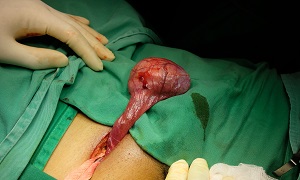Best Testicular Cancer treatment Doctors in India
Best Testicular Cancer Treatment Hospitals in India
- City: Mumbai, India
Hospital Highlights:
- Fortis Hiranandani hospital was established in 2007.
- The hospital is an advanced tertiary care, multi-specialty hospital equipped with 149 beds.
- The hospital is equipped with a super ICU to provide emergency medical care to critically ill patients.
- The hospital is NABH accredited.
- The critical care facility in the hospital is augmented with the state-of-the-art facilities that facilitate speedier diagnosis and efficient monitoring.
- The hospital provides specialty medical services in cardiology, orthopedic science, pediatric science, neurology, diabetic care, urology, nephrology, ENT, obstetrics, gynecology, cosmetic surgery, bariatric surgery, neuro and spine care.
- City: Gurugram, India
Hospital Highlights:
- W Pratiksha Hospital, Gurugram, is one of the best hospitals in the NCR region. It is also a top hospital in India for IVF. Since its inception, the hospital has performed over 5500 successful IVFs. The hospital also specializes in gynecology.
- With over 20 years of experience in providing quality healthcare, the hospital is known as one of the most trusted and valued health providers in India.
- Equipped with world-class medical facilities and advanced technology, the hospital’s doctors and clinicians also have a track record of delivering excellent results. The hospital is also known for focusing on preventive well-being as much as on curative treatment.
- The hospital has earned the trust of its patients, by providing the best available treatments at affordable costs.
- City: Gurugram, India
Hospital Highlights:
- Paras hospital was established in 2006 and is the 250 bedded flagship hospital of Paras Healthcare.
- The is supported by a team of doctors of international and national repute.
- The hospital is NABH accredited and also the first hospital in the region to have a NABL accredited laboratory.
- The hospital provides specialty medical services in around 55 departments including Neurosciences, Joint Replacement, Mother & Child Care, Minimal Invasive Surgery, Gynecology and Obstetrics, Ophthalmology, Dermatology, Endocrinology, Rheumatology, Cosmetic and Plastic surgery.
- The hospital is equipped with state-of-the-art technologies.
- City: Kolkata, India
Hospital Highlights:
- Fortis Hospital, Anandapur, Kolkata is a world-class super-speciality equipped with the latest technologies in the medical world.
- The hospital is NABH accredited.
- This state-of-the-art facility specializes in cardiology and cardiac surgery, urology, nephrology, neurosciences, orthopaedics, digestive care, emergency care and critical care.
- The hospital, governed by integrated Building Management System (IBMS), has a pneumatic chute system, for quick vertical and horizontal transportation between floors, facilitating speedy transfer of patient specimens, documents, reports, and medicines to the concerned departments.
- The hospital also has a nephrology department with over 28 advanced dialysis units.
- City: Mumbai, India
Hospital Highlights:
- SL Raheja hospital is a 140-bed multi-specialty tertiary care hospital that is being managed by Fortis Healthcare Ltd.
- The hospital is a benchmark in healthcare and medical facilities in the neighborhood of Mahim & the western suburbs.
- L.Raheja Hospital, Mahim has one of the most effective ICU and Casualty care services.
- The hospital provides specialty medical services in Cardiology, Oncology, Neurology, Orthopedics, Mother & Child Care, and in Diabetes.
- City: Mumbai, India
Hospital Highlights:
- Wockhardt Hospitals were established in the year 1973, originally called First Hospitals and Heart Institute.
- Wockhardt Hospitals are super specialty health care networks in India, nurtured by Wockhardt Ltd, India’s 5th largest Pharmaceutical and Healthcare company.
- Wockhardt Hospitals is associated with Partners Harvard Medical International, an international arm of Harvard Medical School, USA.
- Wockhardt Heart Hospital performed India’s first endoscopic heart surgery.
- The hospital has a state-of-the-art infrastructure equipped with the latest technologies and modern equipment.
- It has special Centers of Excellence dedicated to the major specialties to provide hassle-free and high-quality clinical care.
- City: Gurugram, India
Hospital Highlights:
- The CK Birla Hospital in Gurugram is a NABH-accredited multi-specialty hospital.
- The hospital strives to increase the quality of healthcare by focusing on UK NHS nurse and midwife training requirements. Policies and practices derived from the National Institute for Health and Treatment Excellence (NICE) recommendations in the United Kingdom ensuring that a strong focus on safety, high-quality clinical care, and sanitation is maintained.
- The hospital’s cutting-edge technology and facilities allow for real-time communication and seamless collaboration among caregivers, ensuring accuracy and the best possible results. Those with foreign experience and accreditations make up part of the hospital’s team of clinicians.
- City: Ahmedabad
Hospital Highlights:
- As a member of the Apollo Hospitals Group, Apollo Hospitals International Limited, Ahmedabad is one of the most popular and sought-after medical facilities in Gujarat.
- Through its 6 Centres of Excellence and various affiliated branches, which cover all specialties and subspecialties, the hospital provides the most advanced clinical services.
- Since its inception in 2003, the hospital has been providing each patient with the most up-to-date medical equipment and state-of-the-art technology.
- With more than 150 successful organ transplants, including liver and renal transplants, the facility has been able to build a strong and extensive organ transplant program.
- In addition to performing 600 surgeries and caring for over 1800 patients on an IP basis, the hospital sees more than 18,000 patients on average in the outpatient department.
- With one of the biggest cardiology teams in the area, the hospital provides state-of-the-art regional care treatment in Cardiac Sciences.
- Additionally, the hospital offers a broad range of Neuro Interventional techniques to help stroke patients recover more quickly.
- City: Noida, India
Hospital Highlights:
- Jaypee Hospital is the flagship hospital of the Jaypee Group.
- This hospital has commissioned 525 beds in the first phase and has been planned and designed as a 1200 bedded multi-specialty facility.
- It holds the accreditation of the NABH and NABL.
- The hospital has state-of-the-art infrastructure equipped with the latest technologies and modern equipment like 64 Slice PET CT, Dual Head 6 Slice SPECT CT, Gamma Camera, and Da Vinci Robotic Surgery for comprehensive robotic surgical solutions.
- It has special Centers dedicated to the major specialties to provide hassle-free and high-quality clinical care.
- City: Mumbai, India
Hospital Highlights:
- Reliance Hospital is one of the best super-specialty care hospitals in Navi Mumbai.
- The main purpose of this hospital is to become a trustworthy place for the best health and hope for society. The hospital is well connected to the suburbs of Mumbai and Navi Mumbai.
- The hospital has various specialty departments, viz., Accident & Emergency, Anesthesiology, Dental Services, Dermatology, Diabetology, Dietetics Nutrition, Endocrinology, ENT, Gastroenterology, General Surgery, Gynaecology And Obstetrics, Hepato Pancreato Biliary Surgery, Infectious Disease, Internal Medicine, Interventional Radiology, Laboratory Medicine, Minimal Access Laparoscopic Surgery, Nephrology, Neurosciences, Opthalmology, Orthopaedics, Paediatrics, Pain Management Palliative Care, Physical Medicine Rehabilitation, Plastic And Reconstructive Surgery, Psychiatry, Pulmonary Medicine, Radiology, Rheumatology, Transplant, Urology Andrology, Vascular Surgery
Testicular Cancer
Cancer occurs when the cells grow abnormally and also invade nearby tissues and eventually spreading to other organs in the body through the bloodstream or the lymph nodes.
Testicular Cancer is the cancer of the testicles (testes) that are located inside the scrotum. The main function of the testicles is the production of male sex hormone (testosterone) & sperm production. Testicular cancer may attack one or both testicles and if untreated, may also spread to other parts of the body.
Testicular Cancer causes
- Family history of testicular cancer.
- An undescended testicle (testicle has not moved into the scrotum).
- Age 20-34 years, however it can occur at any age.
- HIV/AIDS
- Men with fertility problems have an increased risk of testicular cancer.
- Men with inguinal hernia are at greater risk of developing testicular cancer.
- Taller men have an increased risk of testicular cancer.
Signs & symptoms of Testicular Cancer
- A lump which is painless can be felt in the testicle.
- Swelling of the testicle.
- Swollen lymph nodes.
- Fatigue
- Weight loss
- A dull pain in the testicle, scrotum or groin.
- Heavy or feeling as there is something in the scrotum.
Types of Testicular Cancer
- The testicles are made up of many types of cells and each of these cells can give origin to a variety of cancer in the testicles. It is important to understand the type of cancer for an effective treatment strategy, because the treatment can vary by the type of cancer in the testicles.
- Germ Cell Tumors (GCTs)- Germ Cells are the cells that produce the sperm. More than 90% of testicular cancers originate in the germ cells. There are two main types of GCTs, viz. Seminomas and Non-seminomas Germ Cell Tumor (NSGCT). Both of them can occur at the same rate and men can have either one or both
- Seminoma Tumors- Seminoma Tumors are generally less aggressive than non seminomas. Although they can happen at all age groups, but elderly men are more likely to have seminoma.
- Non-seminoma- Non-seminoma Germ Cell Tumors are the more aggressive types. They generally happen occur in younger men. They grow and spread rapidly and hence, need immediate intervention. NSGCTs have variety of sub-types such as; Choriocarcinoma, Embryonal carcinoma, Teratoma & Yolk Sac tumor
Stages of Testicular Cancer
- Stage 1: Cancer is confined to the testicles.
- Stage 2: Cancer has spread to the lymph nodes in the testicle
- Stage 3: Cancer has spread beyond the lymph nodes in the testicle & it may be present in parts of the body that are far away from the testicles like the lungs, liver, kidney and brain.
Diagnosis of Testicular Cancer
Physical examination
Medical History of the patient
Blood test
CT scan
CT Scan takes a series of X-ray images of the abdomen, chest and pelvis to look for signs that cancer has spread.
Treatment options for Testicular Cancer
The treatment of Testicular Cancer depends on the stage and grade of cancer. For all stages and types of cancers, surgery is commonly needed. However, other interventions such as Chemotherapy and Radiation Therapy are generally needed for more advanced stage and more aggressive testicular cancers, typically, Non-Germ Cell Testicular Cancers. Following are the treatment options for Testicular Cancer-
Surgery
The Surgical Options for the treatment of testicular cancer includes:
Radical inguinal orchiectomy
Radical inguinal orchiectomy is is the primary intervention for all types and grades of testicular cancer. In this surgery, the surgeon makes an incision in the groin & extracts the entire testicle through the opening. The patient can have the option of inserting a prosthetic saline-filled testicle.
Retroperitoneal lymph node dissection
For some patients, surgery may be the only intervention needed. After surgery, oncologist will recommend periodic follow-ups and repeat of blood tests and CT scans to check for any new development.
Other Interventions:
However, patients with high grade testicular cancers and advanced stage cancers will need to undergo the following interventions to kill cancer cells and prevent further metastasis.
Radiation Therapy

Radiation Therapy is a kind of cancer treatment that uses high doses of radiation beams to kill cancer cells to shrink the tumors. Radiation kills the cancer cells by destroying the DNA. Cancer cells with damaged DNA fail to multiply and die. They are then removed by the body’s mechanism.
Chemotherapy
Chemotherapy is the use of anti-cancer drug that helps to slow or stop the growth of rapidly dividing cells that cause cancer. It prevents the growth of rapidly dividing cells by killing the dividing cells.
Despite its side effects, chemo is still the most widely used cancer treatment option. Unlike radiation and surgery which treats cancer cells at particular locations, chemotherapy drugs can kill cancer cells that have metastated (spread) to different organs in the body.
















